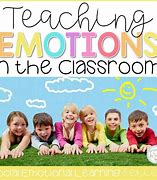Best Ways To Teach Children How To Manage Their Emotions Effectively
Parenting is a challenging but rewarding journey, filled with ups and downs. One of the most important skills we can teach our children is how to manage their emotions effectively. This is crucial for their overall well-being, social development, and future success.
Understanding Emotional Development in Children
Children’s emotional development is a gradual process, with each stage presenting unique challenges and opportunities. As children grow, they encounter a wider range of feelings, and their ability to understand, express, and regulate these feelings also evolves. It’s essential for parents and caregivers to understand these developmental milestones and tailor their approach accordingly.
Building a Safe and Supportive Relationship
A strong and secure bond between parents and children is the cornerstone of effective emotional regulation. When children feel loved, supported, and understood, they are more likely to open up and share their feelings, knowing that they will be met with empathy and acceptance. This safe space allows children to explore their emotions without fear of judgment.
Teach Children the Names of Emotions
A key step in helping children manage their emotions is teaching them to identify and label different feelings. This helps them understand and communicate their emotions more effectively. You can start by pointing out your own emotions, and asking children to identify what they are feeling.
Validate Children’s Emotions
It’s crucial to validate children’s emotions, even if they are unpleasant or challenging. Avoid dismissing or minimizing their feelings. Instead, acknowledge their emotions and offer understanding and support. Let them know that it’s okay to feel angry, sad, or scared.
Teach Relaxation Techniques for Kids
When children experience intense emotions, it can be helpful to teach them relaxation techniques to help them calm down. Simple and effective techniques include deep breathing exercises, mindfulness activities, and progressive muscle relaxation.
Teaching Coping Strategies for Big Feelings
Children need tools and strategies to manage their emotions in a healthy way. Teach them simple coping mechanisms like counting to ten, taking a break, or talking to a trusted adult. These strategies can help them regain control and calm down.
Model Healthy Behaviors
Children learn by watching and imitating their parents and caregivers. Model healthy emotional regulation by demonstrating how you manage your own feelings. This includes expressing emotions constructively, practicing self-care, and using coping mechanisms when faced with challenges.
Set Clear Boundaries
It’s important to set clear boundaries for children on how they can express their emotions. Help them understand what behaviors are appropriate and inappropriate.
Encourage Independence
Give children opportunities to solve their own problems and learn from their experiences. This builds resilience and self-confidence.
Practice, Practice, Practice
Teaching children to manage their emotions is an ongoing process. It requires patience and consistency. Continue to support and guide them, providing them with opportunities to practice emotional regulation skills in different situations.
Conclusion
Helping children develop emotional regulation skills is an essential part of parenting. By fostering a secure and supportive relationship, teaching children to identify and label emotions, validating their feelings, and providing them with coping mechanisms, we can empower them to navigate the complexities of their emotional world with greater skill and resilience.
FAQs
Q: What are some common signs of emotional regulation difficulties in children?
A: Children with emotional regulation difficulties may exhibit behaviors such as frequent tantrums, difficulty controlling anger, anxiety, difficulty focusing, and withdrawing from social interactions.
Q: When should I seek professional help for my child’s emotional regulation?
A: If you are concerned about your child’s emotional regulation, or if their behaviors are significantly affecting their daily life, it’s a good idea to consult with a mental health professional.
Q: What are some resources for parents who want to learn more about emotional regulation?
A: There are many resources available to help parents learn more about emotional regulation. These include books, websites, and online courses.

